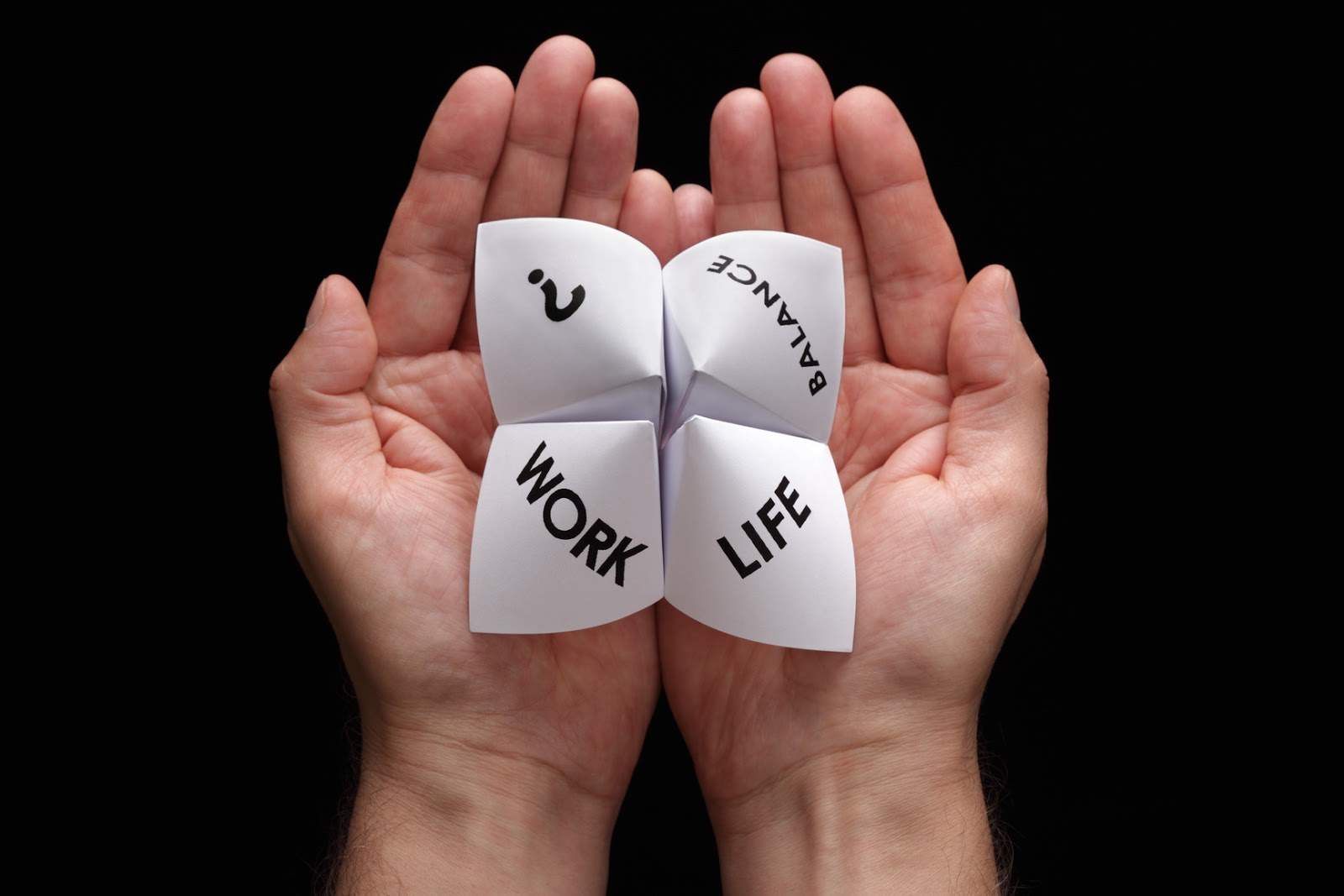Maybe it’s the all-too-familiar stress headache or those knots you carry in the back of your shoulders. Maybe it’s those pangs of guilt at having to cancel a dinner date for the second time in two weeks. Maybe it’s the feeling that all you do is go to work, come home, sleep, go back to work…wash, rinse, repeat. When you start seeing the signs that your work/life balance is slipping, they’re impossible to ignore. And you shouldn’t. Maintaining your optimal work/life balance can make you healthier and happier while increasing your productivity and satisfaction at work.
Why it’s easy to get off balance
In fast-paced, high-pressure industries such as commercial real estate or creative staffing like here at Creative Circle, stress can seem to be an unwritten requirement for the job. Both fields are ultra-competitive and demand an intensive, “client-first” focus and the ability to meet rapidly shifting deadlines. In our jobs, a missed phone call can mean a missed business opportunity, and many of us feel like we have to have our mobile devices on and by our side, 24-7—which can make it feel like your work life is eating your personal life.
Another reason why it can be difficult to achieve that elusive balance in these two professions: When you’re on and going pedal to the metal, you feel like a rock star! Many of us have Type A personalities and claim to thrive under pressure, but too much pressure for too long can result in job burnout, which can actually hurt your ability to perform at the top of your game and make you less efficient and effective. That means wasted time, opportunities, and money. Yes, you can literally assign a dollar value to it: A recent study showed that unhappy workers are 10% less productive. What are your sales numbers, and how would you feel about lopping 10% of that number off?
Unsurprisingly, work-related stress also contributes to very real physical problems, such as heart disease, high blood pressure, and depression. Which in turn, affects the rest of your life and your work. It’s a vicious cycle, but breaking it is easier than you think.
Finding your sustainable sweet spot
Psychologists call an environment or situation in which you get to find that work/life sweet spot sustainable, and there are a host of real benefits for both you and your employer when you achieve sustainability. Members of a sustainable workforce are more motivated, invigorated and committed, as compared to their burnt-out counterparts. They contribute more and miss work less. They feel more satisfied with their job, and perform measurably better, too. That’s not to mention the other benefits to your personal life, such as being an active participant in your friendships, family, religious or civic life. In short, it is basically feeling like you are working to live, not living to work.
Ultimately, everyone is going to have a different idea about what constitutes the right work/life balance, and employers may vary in terms of how much liberty they’ll give employees to implement changes such as work-from-home days or flex time, you don’t need to wait for your employer’s blessing before you start making a plan to find your own balance.
How to get better balance now
Make a list of the on-the-job things that cause you stress, suck your time, or make you feel like you’re losing control of your day, then start to brainstorm solutions. Don’t be afraid to enlist a friendly colleague. We’ve all been there, and you might get some fresh ideas about a problem.
There are also little things you can do every day to buoy your sense of workplace well being.
-
Take breaks.
-
Don’t skip lunch (the further away from your desk, the better.)
-
Designate a few days a week when you don’t take phone calls or check emails before 7 a.m. or after 7 p.m.
-
Find the most effective ways to manage your time when you’re in the office.
It can feel terrifying, but start establishing boundaries, and sticking to them. Your employer wants you to succeed as much as you do, and you shouldn’t be afraid to ask for help if you find yourself overwhelmed.
At the end of the day, whether you’re closing a multi-million dollar deal or creating a multi-million dollar ad campaign, our jobs are about customer service. When you’re feeling your best, you can give your best to your customers—and a little more customer appreciation and a lot more money is a great way to feel more satisfied with your job!
Written by: Creative Circle


